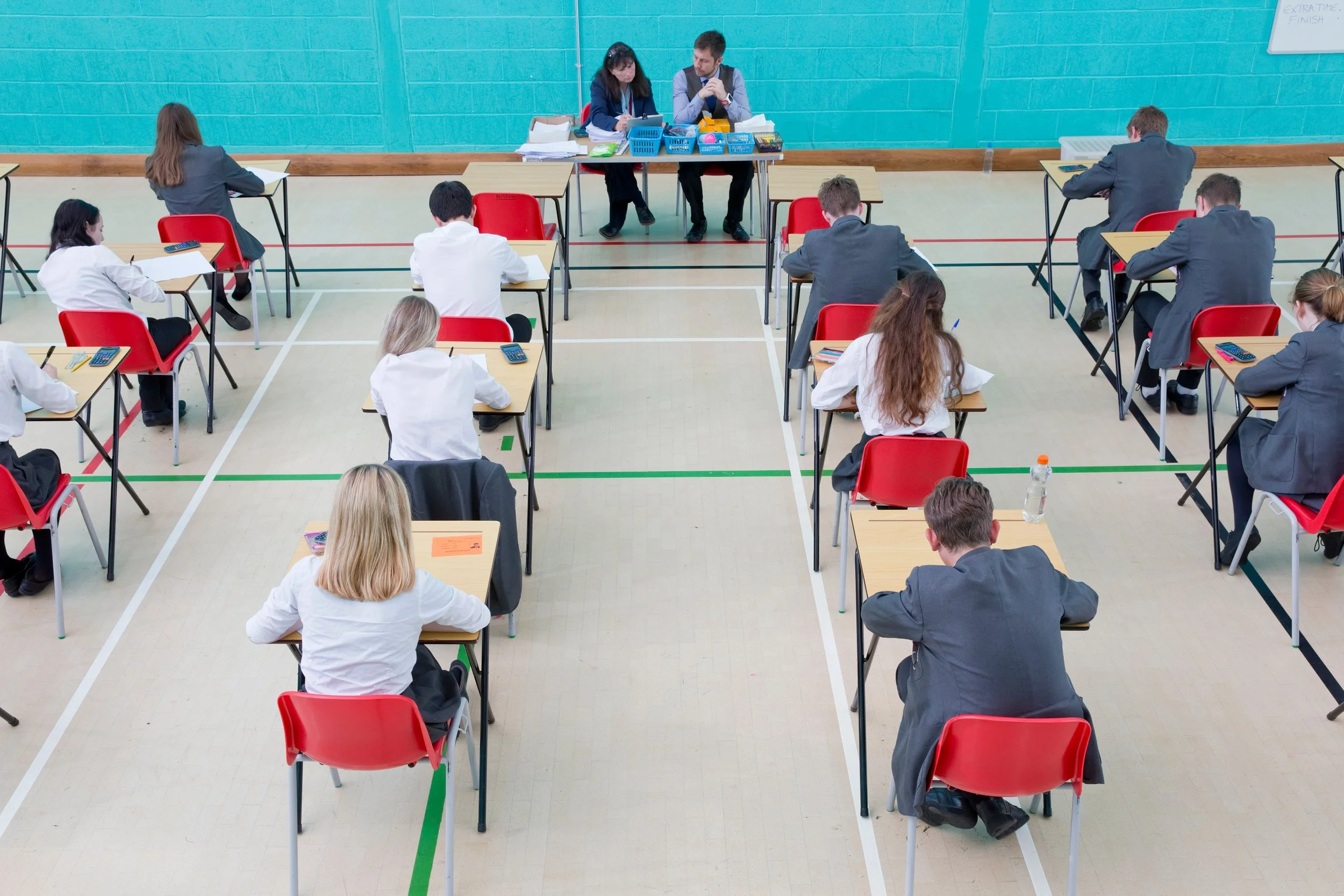The Path to Top Marks: Strategies for Academic Excellence
🕒 Read time: 6 mins
Have you ever opened TikTok or Youtube and just searched ‘How to get a grade 9 in …?’ or ‘How to go from a C to an A* in …?’. Let’s be honest, we’ve all done it, and sometimes it works. Sometimes you come across that one resource or revision method that works perfectly for you and that’s great, but sometimes you don’t quite find what you need, and that is what I’m here for.
My name is Rawan and I achieved grade 9s in all of STEM subjects at GCSE and I got A* across the board at A-Levels, and this is how I did it.
Top Tip 1- USE YOUR TEACHERS
If you don’t understand something in a lesson, ask questions until you do. If you are confused about something outside of a lesson, find your teacher or talk to them at the end of the lesson and ask them to explain it to you. If you are struggling with an exam question and the markscheme isn’t helping, you’ve guessed it, ask your teacher. Your teachers are there to help you learn and progress, and they know your strengths and weaknesses in the subject they teach you and that makes your teachers a much better resource than any Youtube video out there.
Top Tip 2 - UTILISING FEEDBACK
Another thing that is extremely important to achieving better grades is feedback, and in order to get accurate feedback, you have to treat your exams and mocks like the real thing- even if they don’t affect your predicted grades. If you don’t study for your mocks as rigorously as you would for the final exam, when you receive feedback or criticism, it’s easy to say: “I’ll revise more for the real thing” , and this allows valuable feedback to go to waste, when in fact this feedback could save your grade. For example, in my final mock for Further Maths before I sat my A-Levels, I revised for it just as much as I would have for the real exam, but I still achieved a much lower grade than I would have expected. However, I received detailed feedback from my teacher which highlighted some of my misconceptions and my main issue - timing- which led to many, many silly mistakes. This was a wakeup call for me and allowed me to ensure I was doing plenty of practice under time conditions for the real exam. There are lots of studies into the benefits of treating mock exams seriously. For example, a 2006 research paper found that “frequent, realistic practice improves performance in high stakes tests” Also Ofqual research into exam preparedness shows a clear link between mock performance and eventual outcomes. The feedback from my mocks also helped me organise my revision wisely for the summer exam, all of which paid off in the end. In short, feedback is your best friend, because how can you fix mistakes if you never realise you are making them. Research into effective teaching and learning methods by the Education Endowment Foundation suggests that effective feedback from your teachers can add “up to 6 months of additional progress per year for students”, which also reiterates my point about using your teachers as well as utilising feedback.
Top Tip 3- START FROM DAY 1
One question I get asked a lot is “When did you start studying for your GCSEs / ALevels?”. The short answer is around 4 months before if we are talking about consistent studying daily, but really and truly preparation begins from the first day of learning content. Don’t get me wrong, I’m not saying you should be studying for 4 hours everyday from the beginning of year 10/12, because I definitely was NOT doing that. All you need to be doing from day 1 is understanding: If you learn a difficult topic in a lesson that you don’t quite understand, don’t just leave it and say “I’ll worry about it when we have an exam”. Worry about it now. Ask your teachers, watch videos and practise questions until you are confident that you understand the topic well. An easy way to check your confidence in a topic is to check if you would be able to teach it to someone else. I have to admit that I have a very large amount of videos of me sitting at my desk explaining random chemistry topics to my teddies… Studies show that this method of learning is particularly effective. Nicknamed the ‘Protege Effect’ , the studies showed that students who teach others demonstrate a significantly higher understanding and recall than those who learn for themselves, even if those “others” are teddy bears. If you make sure you understand everything as you learn it, when exams come around you will be recapping and practising, NOT learning from scratch, because learning from scratch a few weeks before your exam means you can't spend that valuable time refining your exam skills and becoming better at answering those top mark questions. Also trying to learn an entire syllabus in a month from scratch tends to make you go a little crazy… Just saying.
My Holy Grail Resources:
For A-Level Chemistry, my best friends for independent study were chemrevise.org and Allery Chemistry on Youtube. Chemrevise contained condensed, exam board specific notes that contained everything you need to know, and nothing you don’t. For recapping topics as exams got closer, I watched Allery Chemistry's topic summary videos- which were also exam board specific- in order to ensure I wasn’t missing any information.
For GCSE Maths, I loved mathsgenie.co.uk , it had practice questions for every subtopic in maths, organised by grade level, so you could start easy and work your way up. For ALevel Maths and Further Maths, I loved madasmaths.com when I really wanted to challenge myself, this website contains tricky questions which are designed to take you out of your comfort zone which really helps in answering those A* questions in an exam.
For GCSE Science, cognitoedu.org and Free Science Lessons on youtube really helped me boost my understanding. Free Science Lessons has videos explaining all you need to know for each GCSE topic with no waffle, and cognito has videos which explain the topics in an engaging way, which helped my understanding of more difficult topics.
References
Allery Chemistry, n.d. Allery Chemistry – A Level Chemistry Resources. [online] Available at: https://www.allerychemistry.com [Accessed 3 November 2025].
Chemrevise, n.d. Chemrevise – A Level Chemistry Revision. [online] Available at: https://chemrevise.org [Accessed 3 November 2025].
Cognito, n.d. Cognito – Free Online Science and Maths Lessons. [online] Available at: https://cognitoedu.org [Accessed 3 November 2025].
Education Endowment Foundation (EEF), n.d. Feedback. [online] Available at: https://educationendowmentfoundation.org.uk/education-evidence/teaching-learning-toolkit/feedback [Accessed 3 November 2025].
Fiorella, L. and Mayer, R.E., 2013. The relative benefits of learning by teaching and teaching expectancy. Contemporary Educational Psychology, 38(4), pp.281–288.
Madas Maths, n.d. Madas Maths – Mathematics Resources and Papers. [online] Available at: https://madasmaths.com [Accessed 3 November 2025].
Maths Genie, n.d. Maths Genie – GCSE and A Level Maths Revision. [online] Available at: https://mathsgenie.co.uk [Accessed 3 November 2025].
Ofqual, n.d. Office of Qualifications and Examinations Regulation. [online] Available at: https://www.gov.uk/government/organisations/ofqual [Accessed 3 November 2025].
Roediger, H.L. and Karpicke, J.D., 2006. Test-enhanced learning: Taking memory tests improves long-term retention. Psychological Science, 17(3), pp.249–255.
Rawan is a dedicated Maths and Science tutor currently pursuing a degree in Mathematics at university. As both a Tutor and Content Writer for Learn Science Together, Rawan combines academic excellence with a passion for inspiring others. Having achieved A* grades in Mathematics, Further Mathematics, and Chemistry at A Level, she writes engaging, insightful articles that help students gain confidence, deepen understanding, and master the skills needed to achieve top grades.







